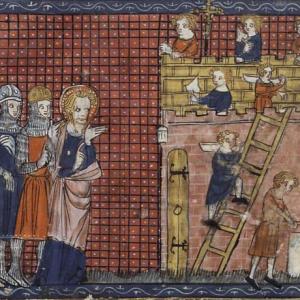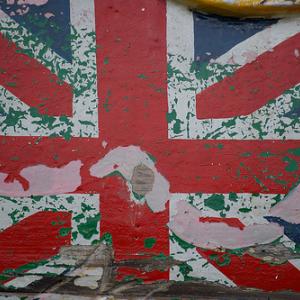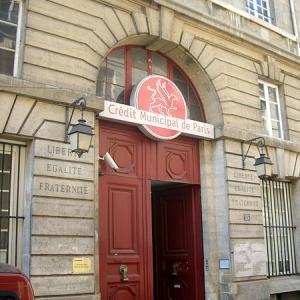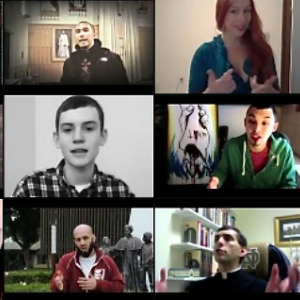
Hailing from the United Kingdom, Jack was born in the coastal town of Brighton, but having spent over 10 years living in London, now considers himself a true resident of the greatest city in the world (in Jack’s mind, there is no argument about this). He spent six years at a boarding school that looked suspiciously like Hogwarts, before relocating to the University of Surrey for four years, where he studied International Politics, developing a passion for social justice in his town and overseas. Spending 6 weeks in Rwanda in 2008 ignited a passion for God’s heart for the poor and marginalised and he spent his third year at university working full time for Tearfund, a UK-based Christian international development charity. He graduated this summer and is so glad that Sojourners has given him the opportunity to have an adventure in Washington, D.C. this year!
Brought up in a theatrical family (his parents started a touring theatre company when he was 6 months old), Jack has always been encouraged to be creative and loves to act, sing and play the guitar. He is also a big fan of football (and will do his best not to start calling it ‘soccer’), although it is highly likely that you won’t have heard of the team he supports, as they are pretty awful. No, seriously, they are truly terrible. He also enjoys running, reading (although he is better at starting books than finishing them) and snowball fights.
Posts By This Author
“Pray For Us”: How Can We Pray Effectively for the People of Syria?
A headline from Reuters stopped me in my tracks earlier this week.
It read, ‘"Pray for us" say Syria rebels as army closes in’." I was struck by how moving I found this statement, this plea.
I do my best to remember places of conflict and strife in my prayers, but very rarely have I been petitioned to pray from a conflict situation by those in the middle of the conflict. It may be a strange reaction on my part to conflate a headline from a news report to be a direct request for my prayers, but that is how I responded when I read it.
“Pray for me” is not an abstract or passive statement. When we are asked to pray for someone, or a group of people, we are charged to bring their need or suffering to God.
Lent (or Why I Need a Break from the 'Like' Button)
Consciously or not, when we recognize the need to step away from social media, it is because we are questioning who is in control.
If our default is to ask life’s big questions on Twitter before we offer them in prayer, then someone other than God is in control. If we "Like" what someone is doing of Facebook before we recognize everything God is doing in our lives, maybe we need a social media time-out.
Lent is the right time to realign ourselves with the fact that God should be in control in our lives.
Poll Digest – What We Are Being Told About What We Think (This Week, at Least)
Two new polls have been released this week that have caught the eye – one from The Pew Forum on Religion and Public Life and the second from Rasmussen. Both show shifts in the number of people supporting GOP Presidential Candidates Mitt Romney and Rick Santorum, and some rather large shifts at that.
10 Things We Bet You Didn't Know About St. Valentine

Saint Valentine of Terni and his disciples. France, Paris, 14th century via Wiki Commons, http://bit.ly/deGE9S
Chances are you feel one of two ways about Valentine’s Day — you either love it, or your loathe it. For you, it’s either the time to shower that special someone with extravagant gestures or it’s a hyper-commercial day that doesn’t mean anything because you should show someone how much you love them every day.
Sound familiar?
If so, why don’t we agree to put the debate aside for a moment and get to know a little better the man who’s name to see on cards and teddy bears and chocolates but once a year: Interesting-Things-You-
Find out what they are inside the blog...
The "War on Religion" and the Contraception Debate
There likely was little Sabbath-ing for politicians and journalists this weekend, as the debate over health policy raged across the campaign trail and in the television studios.
In a fiery comment piece in The Los Angeles Times, David Horsey reported that at CPAC, Mitt Romney pledged that he would “reverse every single Obama regulation that attacks our religious liberty and threatens innocent human life in this country.”
Speaking on Face The Nation, Senate Minority Leader Mitch McConnell stated that the contraception controversy is an issue of religious freedom.
Republican Presidential Candidate Rick Santorum laid out his position on the situation very clearly on Meet The Press.
Some Hidden Gems Among the Grammy Glitterati
The 2012 Grammy Awards are upon us. With more categories than you could shake a baton at, the very best in music will come together this weekend to recognize and celebrate the achievements of some of the biggest talent of 2011.
While most are focused on the biggest categories — and trying to guess just how many awards Adele will take home with her — there are some real gems tucked away in a number of the less well-known categories.
For instance ... in the "Best Folk Album" category, there’s usually underutilized instruments a-plenty, including an album made entirely on the ukulele from Eddie Vedder (which the Pearl Jam frontman cleverly named Ukulele Songs).
And there’ll be some friendly brotherly competition between Stephen, Ziggy and Damian Marley, with all three sons of the legendary Bob nominated for awards (Stephen and Ziggy competing in the same category of "Best Reggae Album").
Santorum's Trifecta
It was an eventful night in the GOP primary race last night, with some surprises in the results.
See the best of the reaction to what happened right here:
In The New York Times, Rick Santorum’s trifecta of victories was called “another twist to an unruly nominating contest that has seen Republican voter veering among candidates and refusing to coalesce behind anyone.”
Former Senator Santorum’s victory has been put down to the voting preferences of “evangelicals and Tea Party adherents”, who make up a significant percentage of the electorate in all three states. One pundit noted that when it comes to voting:
“evangelicals, they get out. Cold, wind, rain or snow, they get out.”
Happy Birthday Charlie! Dickens' 200th Celebrated Worldwide
“Come in, and know me better man”
~ Ghost of Christmas Present, A Christmas Carol
As the 200th birthday of Charles Dickens is celebrated around the world today, it seems like a great opportunity to get to know the author a little better.
And where else would a tech-minded person like myself head first? Why the Google Doodle of course!
Hershey's Fair Trade Announcement is Bliss

Chocolate Jesus. Image via Wiki Commons, http://bit.ly/wXJOBI.
We missed this announcement last week, but it’s good news and so it’s worth going back a few days for!
There was good news for ethical chocolate lovers last week when Hershey’s announced a number of measures to promote ethical practices in its chocolate production.
Follow the Meme: "Why I Hate Religion But Love Jesus" Copycats and Responders
Why I Hate Religion, But Love Jesus is a true Internet phenomenon, garnering more than 18 million views and sparking a global debate.
As with most internet phenomena, the viral video has given birth to dozens of similar videos from folks around the world, each adding a different (sometimes serious, sometimes not) perspective to the debates.
Whilst none has had quite the same impact as the original in terms of millions of hits, clicks and media coverage, there are conversation starters aplenty in many of these intriguing (and entertaining) videos.
See a roundup of some of the most interesting responses inside the blog...
David Brooks to "Why I Hate Religion But Love Jesus" Guy: Avoid the Vagueries
Since his poetry went viral in the YouTube sensation “Why I Hate Religion, But Love Jesus," Jefferson Bethke has been put at the center of sparked intense debate both within and outside the Church. His subsequent change of heart (after discussions with a number of the theologians who critiqued his interpretation of Jesus’ view of religion), is symptomatic of a deeper issue for this generation’s protestors and activists, David Brooks writes in the New York Times:
This seems to be a moment when many people — in religion, economics and politics — are disgusted by current institutions, but then they are vague about what sorts of institutions should replace them. This seems to be a moment of fervent protest movements that are ultimately vague and ineffectual.
When It Comes to Welfare Reform, Britain is Not So Great

Union Jack mural in disrepair. Image via http://bit.ly/wLwse2.
Gandhi once said that "a nation's greatness is measured by how it treats its most vulnerable." Today, it strikes me that the "Great" in Great Britain should probably be quietly dropped, and replaced with "Abject," "Inadequate" or something equally disparaging.
For that is how the UK is currently treating its most vulnerable — the young, the elderly, the disabled — inadequately, abjectly and without compassion. For the last few weeks, a battle has been raging between the government, the legislature, the Church, organizations, and the general public over a piece of legislation called the Welfare Reform Bill.
The bill is wide ranging in its ‘reforms’, covering a myriad of social security measures – from disability benefits, to welfare offered to the unemployed and their families and children. At a time when austerity and budget cutting is front and center of the government’s agenda, ‘reform’ is a by-word for ‘cutbacks’.
The crux of the legislation is an attempt to distinguish between different categories of "the poor," to weed out the “undeserving” from the “deserving.” Sadly, as can be seen from the uproar that the Bill has caused, this attempt has failed.
The People's Prayer Breakfast: “I woke up this morning with my mind set on justice...”
“I woke up this morning with my mind set on justice...”
So sang Sweet Honey In the Rock’s Dr. Ysaye Barnwell this morning. And, sitting in a room with hundreds of activists, occupiers and people of similar persuasions, it was hard not to embrace that mindset.
Maybe it’s a failing of my own, and a comment on my devotion to the 24-hour news cycle, but recently I have lost sight of the excitement and intent that the Occupy movement originally injected into the psyche of the nation.
Blessedly, this morning’s gathering, in the welcoming environment of Church of the Pilgrims in Washington, D.C., was an opportunity to hear once again words of hope, energy and defiance. The People’s Prayer Breakfast was everything I hoped and expected it to be.
It was friendly, optimistic and (as there should be at any good breakfast meeting), there was food aplenty for everyone in the bustling hall beneath the church — a mishmash of young, old, people of different faith traditions and various cultures. A large contingent of students from a local Quaker school injected a youthful optimism into the morning (filling the energy gap that even a strong coffee could not supply at 7:30 a.m.)
The atmosphere was one of peace and contentment. And yet, at the same time, there was urgency in the voices of those who addressed us.
Showdowns, Deadlines and Escalating Violence: Occupy Wall Street
It’s deadline day for Occupy DC:
From MSNBC - Occupy protesters in the nation's capital were preparing for a noon Monday deadline set by federal park authorities to end camping at some of the movement's last remaining large encampments, with some "surprises" in store, one of the activists said.
From The Huffington Post - U.S. Park Police say an officer used an electronic stun gun on an Occupy DC participant who was tearing down fliers warning protesters about the ban on camping in McPherson Square.
Violence escalates at Occupy Oakland – tear gas used, hundreds arrested
From The Associated Press - The demonstrations in downtown Oakland broke a lull that had seen just a smattering of people taking to Oakland's streets in recent weeks for occasional marches that bore little resemblance to the headline-grabbing Occupy demonstrations of last fall.
The Red Phone
How many people wanted to be President of the United States when they were younger? I’d imagine quite a few. I certainly did, although I now realize that such an attempt would have resulted in something of a "birther" controversy.
As a kid, what made me want to be in such a position of authority wasn’t necessarily the power and prestige of the president. It wasn’t the White House, or Air Force One. It wasn’t even having the authority to pardon a turkey once a year.
It was the red phone.
You know the one. Commissioner Gordon has one for Batman. President Merkin Muffley has one in Dr. Strangelove (I’m pretty sure it’s red, even though it is shot in black and white). It was the phone you used to fix things. To call the superhero, or patch things up with an inebriated Soviet leader (what, you didn’t play Cold War when you were growing up?) That red phone was your hot line to solving whatever problem you were confronted with.
Today, I still want that red phone.
Egypt: The Revolution One Year On

Tahrir Square, November 2011. Image via Wiki Commons http://upload.wikimedia.org/wikipedia/commons/0/00/Tahrir_Square_on_Novembe
Today is one year to the day since protestors massed in Cairo's now-legendary Tahrir Square. Inspired by events in nearby Tunisia, hundreds of thousands of Egyptians called on their leader, Hosni Mubarak, to step aside and allow democratic reform to take place. The country, the city, the square, were (and remain) icons for what has become known as the Arab Spring.
The protests that began a year ago brought down a government that for too long had failed to care for its citizens in a manner that was good, decent and just. But in the time since, Egypt has walked a difficult path. How are Egyptians marking this poignant anniversary, how do they feel about the changes that have occurred, and what are their hopes for the years to come?
Here’s a round-up of some of the best insights into these questions from around the world:
France's "Bank of the Poor" Forgives Debts

Mont-de-Piete in Paris. Photo via Wiki Commons http://commons.wikimedia.org/wiki/File:Cr%C3%A9dit_municipal_de_Paris,_5...
GOOD.is reports that some lucky customers of France’s oldest bank have had their loans forgiven, in a gesture that marked the Crédit Municipal de Paris’s 375th anniversary (or is that anniversaire?) The bank has a history of looking out for its customers and was in fact founded (in 1637) as a bank that would give “the needy access to fair banking” — something that was certainly not commonplace in the 17th Century.
Just How Free?

"Freedom." Photo illustration via Wylio http://bit.ly/xAJy0A
Just how free are we?
Freedom is a word often used by politicians, economists and others in positions of power/authority as a byword for happiness. The more freedom we have, the happier we are. Whether this is actually the case, freedom is something that oftentimes may not be particularly tangible.
Freedom House attempts to help us understand what freedom actually looks like in its annual publication, Freedom In The World, with the 2012 edition published today. And their focus? The Arab Uprisings and the impact they have had, and continue to have, on the world.
From the top-line data that Freedom House has collected, the news isn’t good. Despite seeing “the most significant challenge to authoritarian rule since the collapse of Soviet communism” during the past year, only 12 countries actually recorded an overall improvement in their freedoms, in comparison to 26 countries that saw their freedoms lessened.
Obama Rejects Keystone Pipeline, Faith Leaders Respond

Oil pipeline in Jefferson Co, Texas. Via Wylio http://bit.ly/wslb1w
Late Wedesday (1/18), leaders from Christian and other faith communities welcomed the news that the Obama administration has rejected the construction of the Keystone XL pipeline.
The controversial project, which would have run for 1,700 miles from Alberta, Canada, through the American Heartland to the Gulf of Mexico, would have been a backward step in the administration’s professed commitment to investing in clean and renewable energy sources.
In August 2011, more than 1,200 peaceful protestors were arrested as part of a sustained campaign to demonstrate against the pipeline project. In November 2011, Sojourners CEO Jim Wallis, along with other Sojourners staffers and 15,000 members of the public, peacefully (and prayerfully) encircled the White House to urge President Obama to stop the project.
Sojourners welcomed the Obama’s decision in November to postpone the permitting of the pipeline until an environmental impact report was completed. While this new decision is a clear step forward, TransCanada has the opportunity to reapply for the permit along a different route and leaders have pledged to remain vigilant and watch the issue closely.
Keystone XL Pipeline: Debunking Some Myths

Pipes for the Keystone XL Pipeline in 2009. Image via Wiki Commons http://bit.ly/wetrWI
The building of a 1,700-mile pipeline through the heartland of the United States has been at the center of the debate on the economy for many months now. Much has been written by those who both support and oppose its construction. And much has also been written about just how important the pipeline would be to the U.S. economy if it were actually to be built.
With the deadline for the Obama administration’s decision on construction coming up fast (2/21), many have already made up their minds. But have they done so on the basis of accurate figures?
It might be pretty difficult to do so, given that various estimates put the number of jobs created though the construction of the pipeline at anywhere between 20 and 350,000. So where have all these different estimates come from, and which one (if any) is actually accurate?
The first difficulty that arises from trying to find an accurate estimate is that most of the numbers from the upper echelons of the estimates come from the company who are hoping to build the pipeline: TransCanada.







